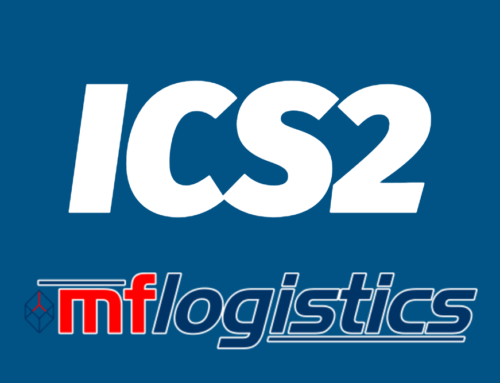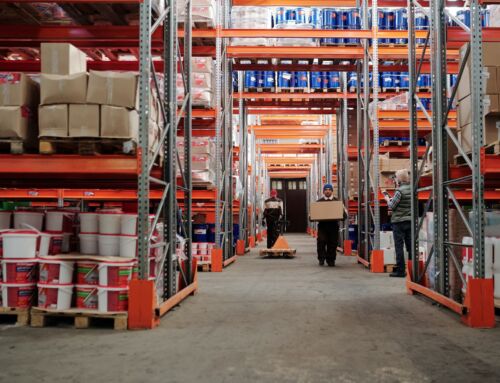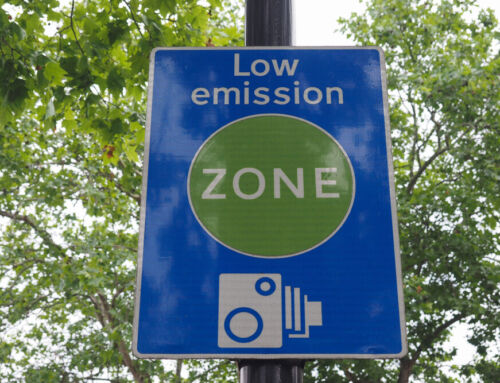It’s been an interesting couple of years for the UK logistics sector. The combined impact of Brexit and the COVID-19 pandemic have created some formidable challenges against a backdrop of rapid changes in supply chains.
But what about the road ahead? 2022 is going to be a critical year for all sectors of the economy as we take tentative steps out the other side of the pandemic. It will be a year of transition, challenge but also opportunity.
Here are four things we expect to define logistics in 2022.
Brexit Fallout Continues
There’s no escaping this one we’re afraid. We’re still feeling our way through the changes to trade and the movement of goods arising from the UK’s new relationship with Europe. And we’re still seeing new rules and regulations introduced.
From the start of February, for example, UK freight companies now have to declare if they are transporting goods to, through or within the EU, Iceland, Liechtenstein and Norway. That’s another new piece of administration for exporters to get their heads around. In the other direction, customs and veterinary checks on transport coming in from the EU started at British borders on 1st January.
In the short term at least, it is expected both measures will cause further delays at ports. Quite simply, it will take time for the new checks to bed in while operators get used to the paperwork.
Goods arriving in the UK from Ireland will continue to be exempt from checks. This raises the prospect of Irish ports becoming significantly busier, should firms decide it is worthwhile routing freight through Ireland to the UK to avoid the new border regime.
But the political sensitivities around the Northern Ireland Protocol need to be watched carefully. It’s a volatile situation, as the recent attempt by Northern Ireland’s agriculture minister to unilaterally halt checks on agri-food cargo arriving from the UK shows.
The Rise of ‘Crowdsourced’ Delivery
The last mile logistics sector has seen demand boom during the pandemic, driven by more consumers than ever buying goods online. To cope with this demand, we’ve seen the emergence of so-called crowdsourced delivery – a trend in retail clients looking to work with multiple fulfillment partners, often smaller and local, to provide a more agile delivery service.
We can see the same happening in the freight sector with growing demand for groupage services, and especially with the emergence of digital freight matching (DFM). Groupage operators have always been able to offer more flexible services for partial loads. DFMs act like a groupage marketplace, matching clients with a haulage firm running the right route and with the capacity to take the required load.
Look Out for ‘Pop-Up’ Warehouses
Another consequence of the boom in ecommerce is that available space in the UK’s warehouses has reached a record low – with forecasts that it could even run out completely by the end of this year. It’s ironic that part of the problem may well be the mega-sized distribution centre model pioneered by retail giants like Amazon. Quite simply, warehouses at this scale cannot be built fast enough to keep up with demand.
The answer is to go the other way completely – back to smaller, local warehousing spread all over our towns and cities. This is better suited to a more flexible, localised approach to distribution. And it has one other big plus going for it – it provides the perfect solution to all the office space that is now sitting empty as firms realise there are significant financial benefits to work-from-home staffing arrangements. Expect to see some of this space co-opted into ‘pop-up’ warehouses at very short notice.
Green Agenda Could Spur a Surprising Shift in Packaging
Plastic packaging? Surely that’s something we should all be cutting back on as part of the drive towards greater sustainability? But not necessarily when it comes to freight. There is a very strong argument that plastic pallets and crates, for example, represent a more eco-friendly option than wood. Especially when they are made from recycled plastic.
Plastic pallets have a much longer life than wood because they break less. They are also more hygienic and easier to clean, so much so that they are exempt from the ISPM15 regulation that requires wooden pallets to be heat treated before use to stop the spread of parasitic organisms.



